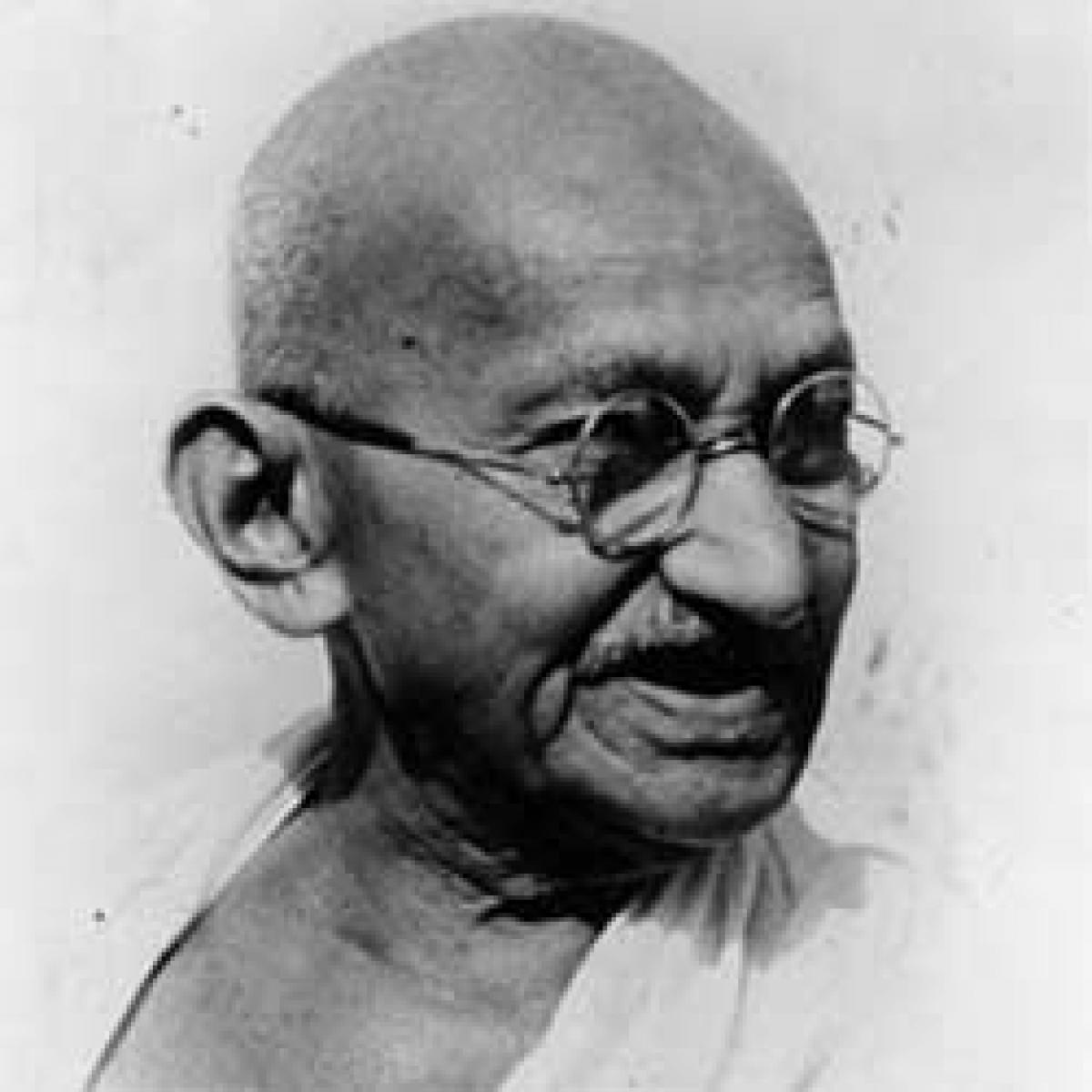Live
- Guinness World Record for continuous Hanuman Chalisa chanting
- REMOTE TRIBAL AREA TO GET NEW BRIDGE
- Dr LB College, Woxsen teams win in Climate Tank Accelerator event
- CM Revanth petitions for change in Paleru rly line
- Udupi MP seeks more key highways on top priority
- New diet plan rolled out at welfare hostels
- HRF demands for nation-wide caste census
- SP launches Medicover family health card
- Chiranjeevi Visits Allu Arjun for Lunch Amid Ongoing Legal Turmoil
- Covid ‘scam’ FIR row: Congress pursuing politics of vengeance, says BJP
Just In

As a tribute to the ideals espoused by Mahatma Gandhi, the Government of India launched the Gandhi Peace Prize in 1995 on the occasion of his 125th Birth Anniversary. The Gandhi Peace Prize, named after Mahatma Gandhi, is awarded annually by the Government of India.
 As a tribute to the ideals espoused by Mahatma Gandhi, the Government of India launched the Gandhi Peace Prize in 1995 on the occasion of his 125th Birth Anniversary. The Gandhi Peace Prize, named after Mahatma Gandhi, is awarded annually by the Government of India.
As a tribute to the ideals espoused by Mahatma Gandhi, the Government of India launched the Gandhi Peace Prize in 1995 on the occasion of his 125th Birth Anniversary. The Gandhi Peace Prize, named after Mahatma Gandhi, is awarded annually by the Government of India.
This award is given to individuals and institutions for their contributions towards social, economic and political transformation through non-violence and other Gandhian methods. It is open to all persons regardless of nationality, race, creed or sex.
To be considered for the award, it would ordinarily be necessary that a person is recommended in writing by someone with the competence thereof, such as, former members of the jury; persons who have received the award, Members of Parliament of India, Nobel Laureates for the last five years; the Secretary-General of the United Nations and other leaders in International Organizations or Institutions whose objectives are promotion of peace, non-violence and emancipation of less privileged sections of society, tolerance, social harmony and social justice; Chancellors and Vice-Chancellors of the Universities; Heads of Indian Missions abroad for bringing it to the notice of and for consulting major relevant institutions and experts of the country concerned; Heads of Institutions relating to studies and research in non-violence and Gandhian principles; Presiding Officers of Lok Sabha/State Assemblies/Councils; Governors/Chief Ministers of the States/UTs Administration; Secretary-General, Commonwealth, Commonwealth Parliamentary Union, Inter Parliamentary Union; and any other person whom the Jury may wish to invite to make proposals for the Award.
Ordinarily, only proposals emanating from competent persons invited to nominate shall be considered. However, a proposal shall not be invalid for consideration by the jury merely on the ground of not having emanated from competent persons. In all such cases, the decision of the Jury shall be final. The Jury can also make a suo-moto nomination. If, however, it is considered that none of the proposals merit recognition, the Jury is free to withhold the award for that year.
Only achievements within 10 years immediately preceding the nomination are considered for the award; an older work may, however, be considered if its significance has not become apparent until recently. A written work, to be eligible for consideration, should have been published.
Presentation of award shall be made at New Delhi at a special ceremony by the President of India. The Secretariat for the award is provided by the Ministry of Culture, Government of India. The first Prize was conferred upon Dr. Julius K. Nyerere, former President of Tanzania.
For the year 1996, the Prize was awarded to Dr. A. T. Ariyaratne, Founder President of Sarvodaya Sharamadana Movement, Sri Lanka. The Prize was awarded to Dr. Gerhard Fischer of Germany for 1997, Rama Krishna Mission (India) for 1998, Baba Amte (Murlidhar Devidas Amte) (India) for 1999, Dr. Nelson Mandela and Grameen Bank of Bangladesh (Jointly) for the year 2000, Dr. John Hume, Ireland, for the year 2001, Bhartiya Vidya Bhawan for the Year 2002, Archbishop Desmond Tutu, South Africa for the year 2005 and Sh. Chandi Prasad Bhatt for the year 2013. The prize was not awarded for the years 2004, 2006, 2007, 2008, 2009, 2010, 2011 and 2012.

© 2024 Hyderabad Media House Limited/The Hans India. All rights reserved. Powered by hocalwire.com







